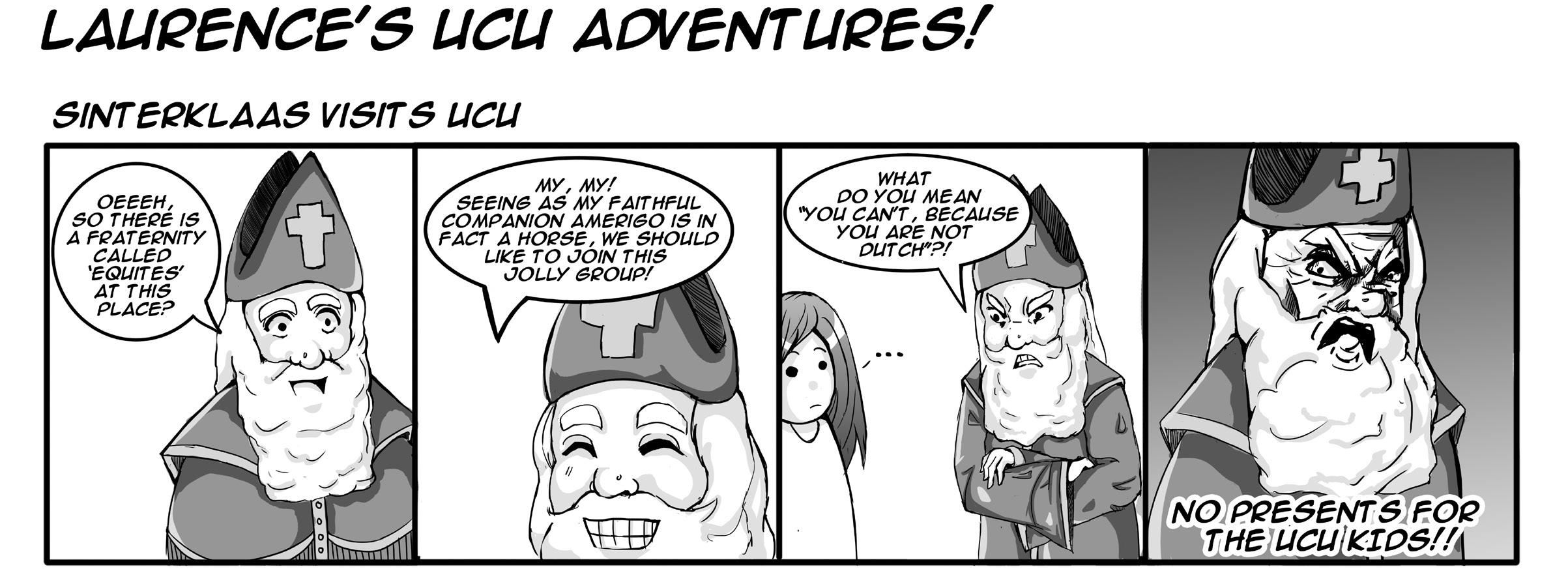
3 minute read
The Song of Achilles A Review
from December 2012

Januschka Veldstra
Advertisement
of Achilles and Troy, giving it a new perspective: that of Patroclus, Achilles’ faithful lover.
most of his attention outwards.
Madeline Miller’s ‘The song of Achilles’ was ten years in the making – but the hard work has paid off. The winner of the 2012 Orange Prize retells the classic tale
Patroclus is the exiled prince, the loser who disappoints everyone, most of all his father. Achilles is the hero-to-be, the demi-god who exceeds all his peers in strength, beauty, and skill. This unlikely pair becomes friends, and ultimately lovers, when Patroclus ends up at the court of Achilles’ father. At times, it may be hard to understand why, as explanations for their infatuation are somewhat lacking. Achilles, the “greatest of all Greeks”, has little going for him until he can show his prowess at warfare. Even more baffling is Achilles’ interest in Patroclus. The latter remains rather nondescript throughout, maybe because as the narrator, he focuses
Going Creative: A Very Short Story Snapshot
The old man sat in the armchair his son had bought at Ikea to replace the other one, the old and beloved one. The one his grandfather had sat on, when he, a little boy back then, would climb on his knees and ask for candy. Those big comforting knees he’d sat on when that old man, now long dead, had laughed loudly and contagiously.
But neither his grandfather, nor the armchair had survived. The chair had outlived the grandfather by several decades, had seen how the grandson had turned into a grandfather himself, but then it, too, had had to meet its maker.
A pipe and fatigue had been its murderers. Fatigue had adamantly weighed down the old man’s eyelids; the burning pipe, feeling a bit lonely, had decided to incinerate its surroundings – the time-honored armchair. At least the old chair’s last act had been one of vigilantism – the pipe had been a victim of its own crime. Only fatigue was still at large and revisited the crime scene frequently, but the charges had been dismissed all the same.
Sure, the new armchair was aerodynamically shaped, joint- and climate friendly, and vegan, but it had no soul, no memories. It wasn’t an armchair; it was a piece of furniture, purchased at Ikea, of all places.
It was raining. For days, he had only heard this constant, almost pulsating sound, interrupted by sudden gusts of wind and the blubbering TV next door. Still, he insisted upon his window being open.
However, keeping in mind that Miller is no Homer, and this is her first work, much can be forgiven. With a background as Classics teacher, she knows the tales she is rewriting well and manages to brilliantly tweak them to accommodate the love story fully. After all, this still is the epic tale we all know from the Iliad, and has much to offer to anyone with an interest in mythology. There is glory to be won, honour to be fought for, fate to be suffered, and most of all love to die for. We know from the get-go that the story ends in tears, yet the suspense remains.
So take the time to enjoy this story during winter break and see how familiar characters are presented ever so slightly differently, giving an entirely new twist to the myth. It is worth it.
For other modern takes on Greek mythology, check out ‘Ransom’ by David Malouf, and ‘Ilios & Odysseus’ – a children’s novel by Imme Dros, one of the best reasons to learn Dutch.
Only then did he feel close to nature, even though there was always a wall between them now. It smelled like rain and green, and when he leaned forward, a soft breeze caressed his tired face.
The conservatory across the street had its windows open, too. Soft and enquiringly, the sound of a trumpet climbing up and down a single scale rose above the song of the rain and cacophony of the street. Up and down, repeating some transitions, up and down again. The scale turned into an etude of uncertain beauty, like a question, not knowing if there even was such a thing as an answer.
He perked up his ears as if he actually had control over the muscles attaching them to his head. But eventually he had to surrender to technology and turn up his hearing aid. Only now could he really hear the symphony of thousands of raindrops in unison with a single trumpet, conducted by the wind. Was anyone else listening, or was he the only one whose daily life was empty enough to be touched by the careful elegance of this combination of nature and man?
He listened more deeply into the sounds that tried to stay on the right pitch, but still billowed around like November fog. The trumpet got softer, as if the player was slowly tiptoeing away, letting the rain gain the upper hand. It tried to rebel with a last sustained note, but then bowed out gracefully, leaving the stage to the rain who accepted the solo as if it were an inalienable right and not a gift.








